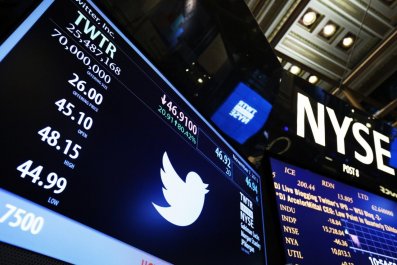A fabulously successful new way to get rich in America is spreading fast, yet hardly anyone but those building these new fortunes knows about it. The genius of this technique is that it requires virtually no capital, involves no risk and does not require years of striving to make it big. It does not even depend on creating the proverbial better mousetrap.
So why has hardly anyone noticed this easy way to accumulate billions of dollars? The answer is that these new fortunes are being built a penny at a time and, sometimes, just a fraction of a penny.
A penny does not seem like much. In fact it is so little that it costs the United States Mint 2.14 cents just to make a penny. (Nickels cost more than 11 cents each.)But anyone who can make every American hand them a penny a day will at year's end have a fortune of more than $1.1 billion.
So how do you do that? With a little help from government, either by forcing people to pay you or by repealing rules that protect consumers from such charges, a tactic also known as deregulation.
Consider a mere six-tenths-of-a-penny charge hidden in the electric bills paid by 61 million Americans who live in the District of Columbia and 13 states from Maryland north to New Jersey and west to parts of Illinois.
A household using about 1,000 kilowatt-hours of power a month pays an extra 20 cents a day in capacity charges that are hidden in the overall bill. That adds up to $72 per year - and for all those paying this hidden charge the cost totaled $3.9 billion, the newsletter RTOinsider.com calculated from records of a little-known electric market regulator, PJM.
Who got this money and why? The money went to investors to make sure they would install enough power plants to generate all the electricity people want on hot summer days to keep their air conditioners running.
The capacity charge is not for the power sold on hot days, which often commands sky-high prices, but just to have electric plants in reserve at the ready in case they are needed. Some of these plants are modified jet engines, installed on the roofs of buildings, which can be switched on remotely.
It is as if the government decided auto dealers should get paid a hidden charge for the cost of keeping every color car on their lot just in case a customer wants a pink Cadillac or a tangerine Kia.
Another technique is to charge people for the cost of billing them. Iberdrola, the Spanish energy company that owns several big American utilities, charges retail customers 47 cents a month to prepare their bill. There is a penny tax added to that. "For a century, utility billing has been straightforward and the cost of office operations, billing and the like is built into the cost," says Charlie Harak of the National Consumer Law Center. "The idea that you can add on the costs of running the billing office is absurd, but it's happening."
Cable and cell-phone companies include charges such as regulatory fees. "They hire lobbyists and lawyers to shape the laws and rules in their favor and then they charge you the cost as an added expense," says Gerald Norlander, who runs the Public Utility Law Project in New York.
Wall Street is on the action, too. In Ohio, customers of American Electric's Ohio Power Company will pay a tenth of a penny on the dollar to make sure investors who bought $267 million worth of bonds get their interest payments.
That is double the historic charge, itself a relic of an era before computers, when keeping track of interest payments to investors was not automated.
Just that extra 20th of a penny, known on Wall Street as five basis points, will cost each of Ohio Power's customers about a dollar, a report by Saber Partners shows.
Saber CEO Joseph S. Fichera analyzed the bond deal for free, concerned that without informed watchdogs extra charges will become the new normal. He found $2.8 million in excess costs for customers.
"If the city finance director spends $25,000 on curtains for his office, it's a page-one story for sure," Fichera told Newsweek, "but if he pays 25 basis points too much in interest on a $10 million bond issue, that's $25,000 that will never get reported in the paper and, unlike the drapes, that $25,000 will continue every year until the bonds are paid off."
There are $3.7 trillion in municipal bonds outstanding, so if interest is just five basis points too high - an extra nickel on every $100 - about $1.9 billion would be extracted from taxpayers and paid to bond investors every year. Corporate bonds total almost three times that much, so you can see how even a 20th of a penny adds up.
Wall Street has also taken notice of how the oil and gas pipeline industries collect what I calculate to be an extra 3 cents per day from every American, adding up to about $3.4 billion per year. You pay this every time you put gas in your car or turn on the stove to boil water.
Pipelines are monopolies regulated by a little-known agency, the Federal Energy Regulatory Commission, which is financed not with tax dollars, but with fees paid by the regulated companies. In 2007 the commission authorized pipelines to collect the corporate income tax in the rates charged to customers. But instead of just charging the 35 percent federal tax on profits, the commission let companies charge what is known as the "grossed up" tax of 54 percent.
But since 1987 pipelines have been exempt from paying the corporate income tax as long as they are organized not as corporations, but as Master Limited Partnerships.
Forcing customers to pay a tax that never gets to government sounds like an issue someone might want to get before a judge. This issue was taken before three federal judges on the District Court of Appeals in Washington. Judge David B. Sentelle, a conservative, wrote that while he was troubled that taxes were even considered in setting pipeline rates, the court had no authority to interfere.
So reform is not forthcoming, but more charges that turn your pennies into billions for others surely are.

























